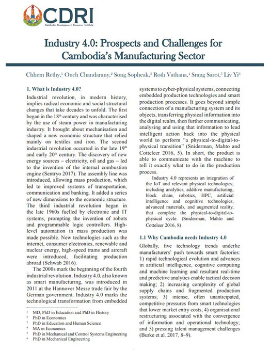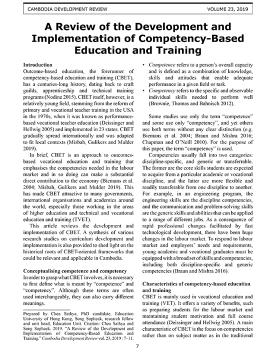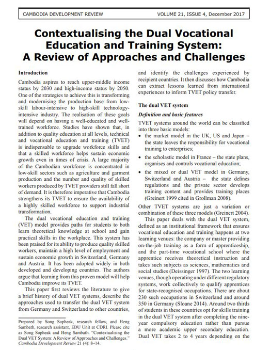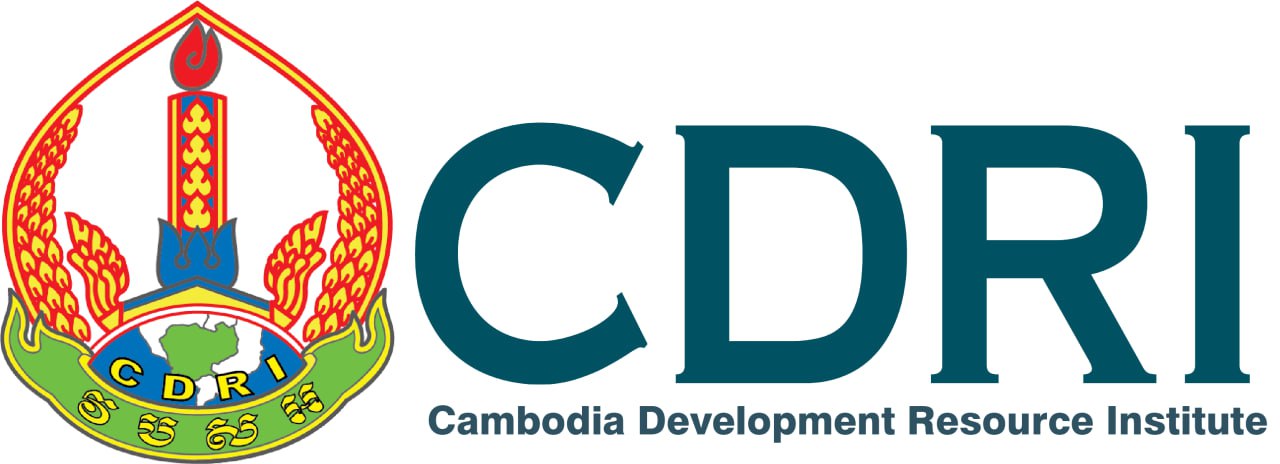Dr SONG Sopheak
Deputy Executive Director
Dr Song Sopheak is the Deputy Executive Director in charge of research at CDRI. Prior to this current position, he had been with CDRI’s Centre for Educational Research and Innovation since 2016, first as the research fellow and then the director between 2020 and 2022. His international experience in research career includes fellowships at the Global Career Design Center of Hiroshima University, Japan; at the Centre for the Study of Higher Education, University of Melbourne, Australia; and at the Swiss Federal Institute for Vocational Education and Training, Switzerland. At CDRI, he has led several research projects on post-secondary education and training in Cambodia with focus on STEM education, workforce development, employer engagement, and technology integration in education. Dr Song Sopheak holds a PhD in Educational Science and Humanities from Hiroshima University, Japan.
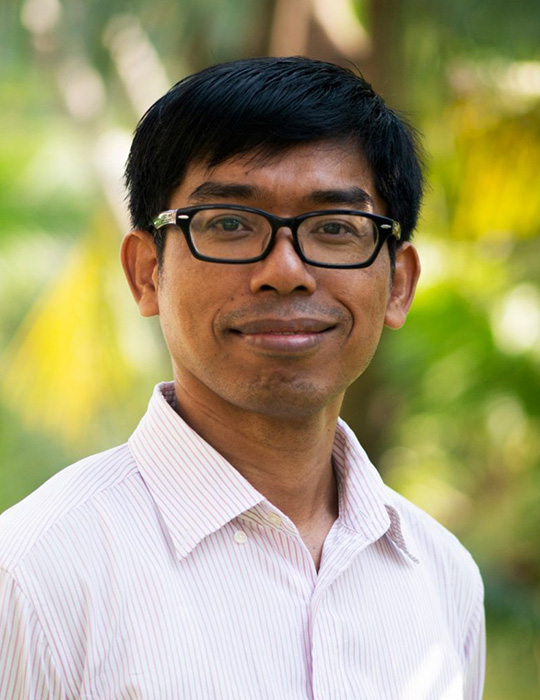
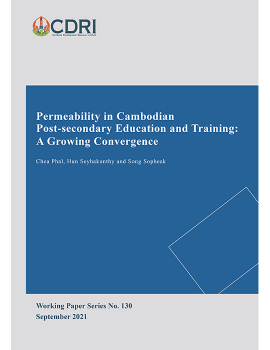
The distinction between vocational training and academic education can be traced back to different institutional structures in medieval Europe. However, owing to an increasing need for higher-level skills to respond to market demand, countries have resolved to establish flexible pathways for students on both tracks or systems to move or transfer ac...
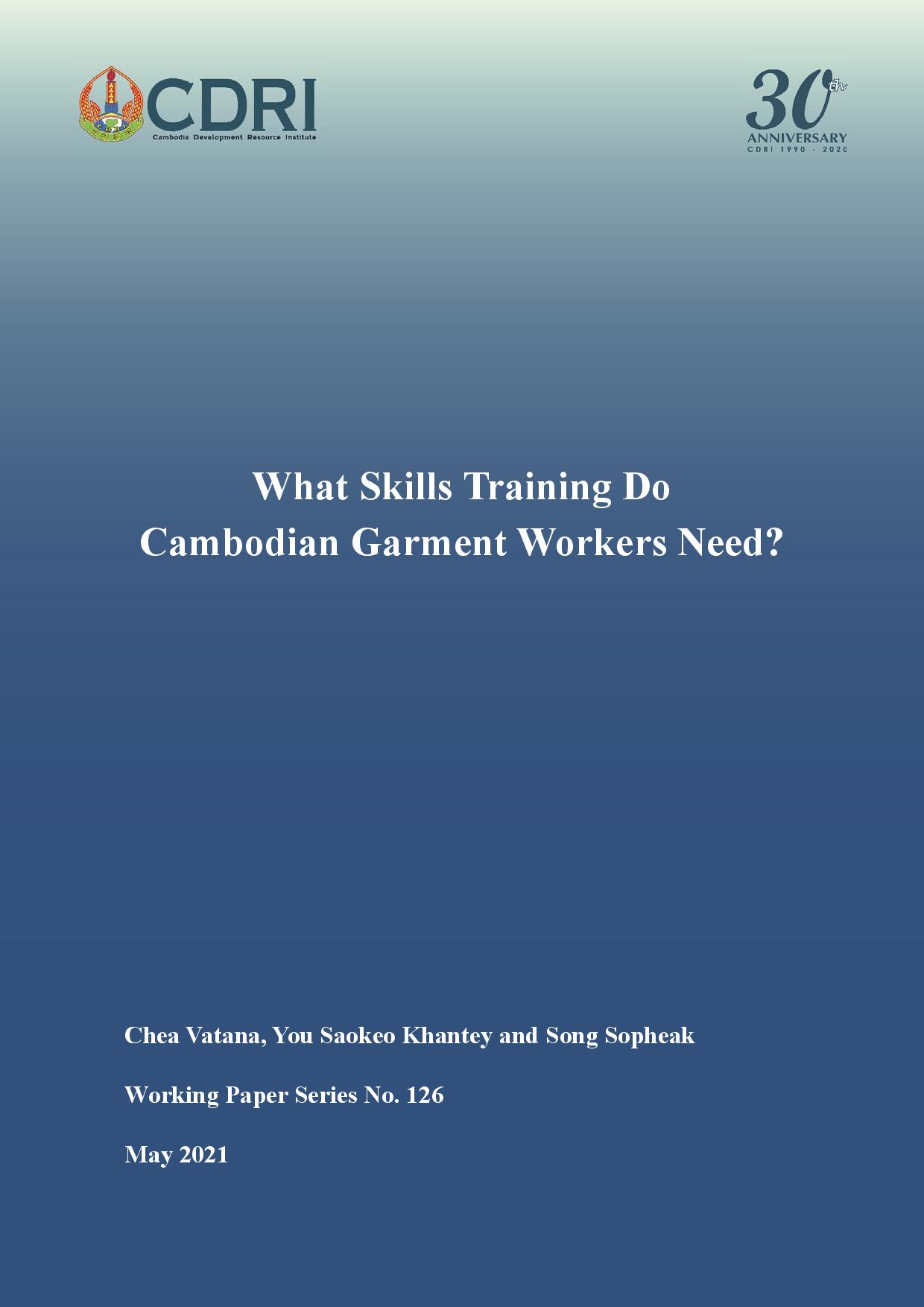
This study aimed to identify the current skills of Cambodian garment workers, whether or not they wanted to gain new skills and, if so, what those were. The results revealed that the greatest percentage – 60 – had acquired sewing skills, followed by quality control and packaging skills. More than two-thirds were also able to read, write and calcula...
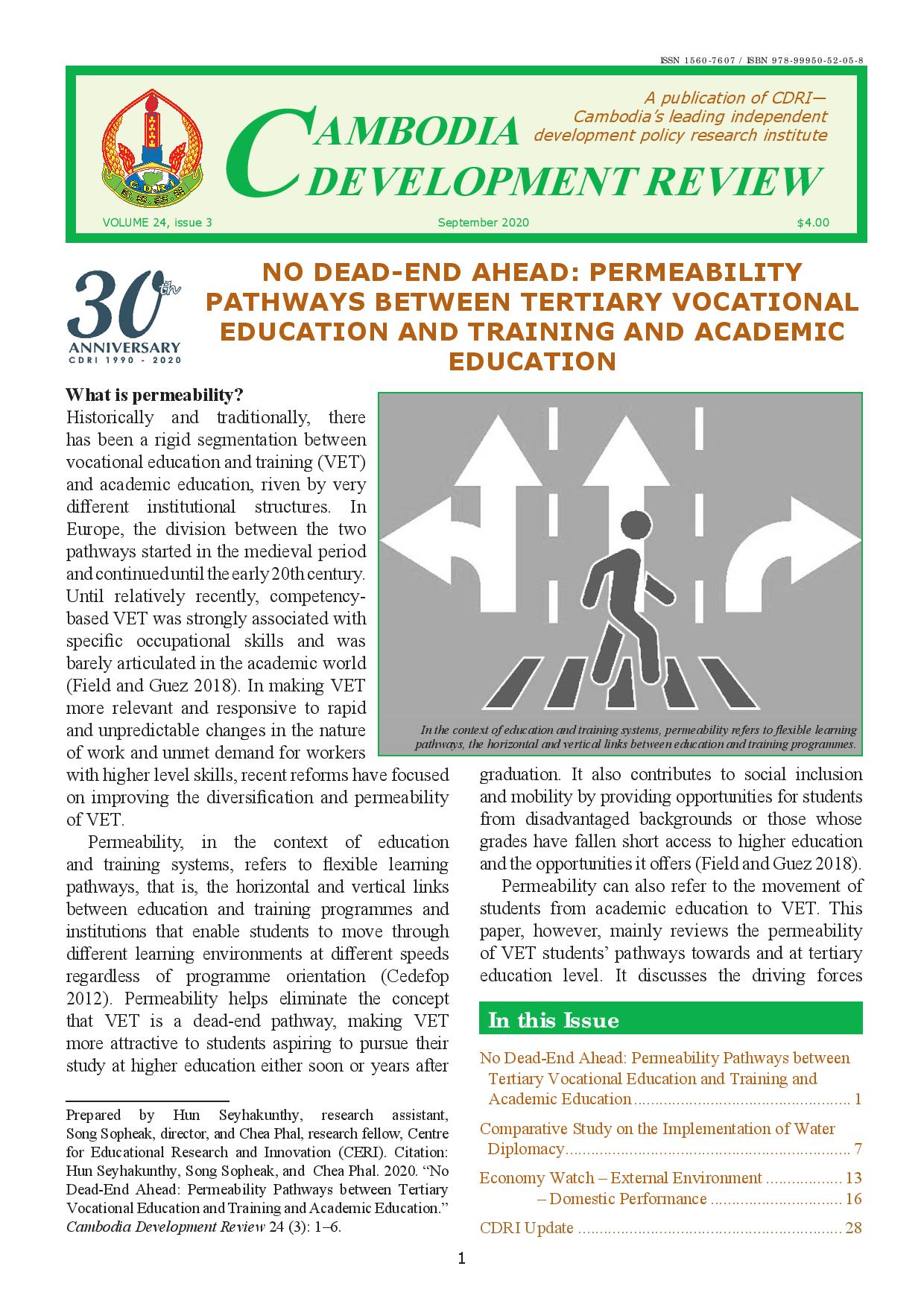
Permeability, in the context of education and training systems, refers to flexible learning pathways, that is, the horizontal and vertical links between education and training programmes and institutions that enable students to move through different learning environments at different speeds regardless of programme orientation. This study aims at d...
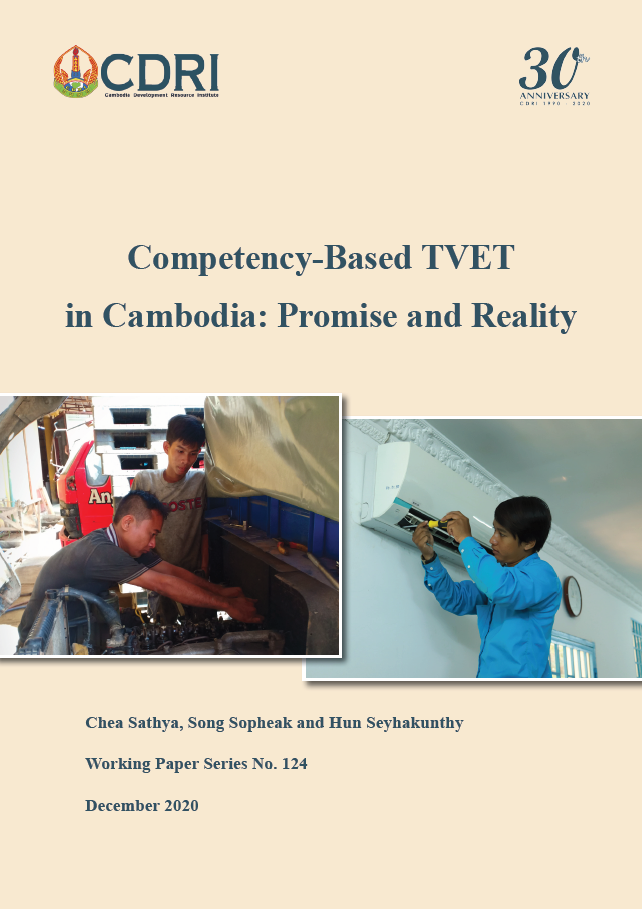
Modernisation brings new economic and social challenges around the globe. In this era of the knowledge economy, knowledge and skills have become valuable assets for national development. Many countries have been working out how best to enhance their knowledge and skills pool. Focus has recently turned to competency-based training (CBT), which is be...
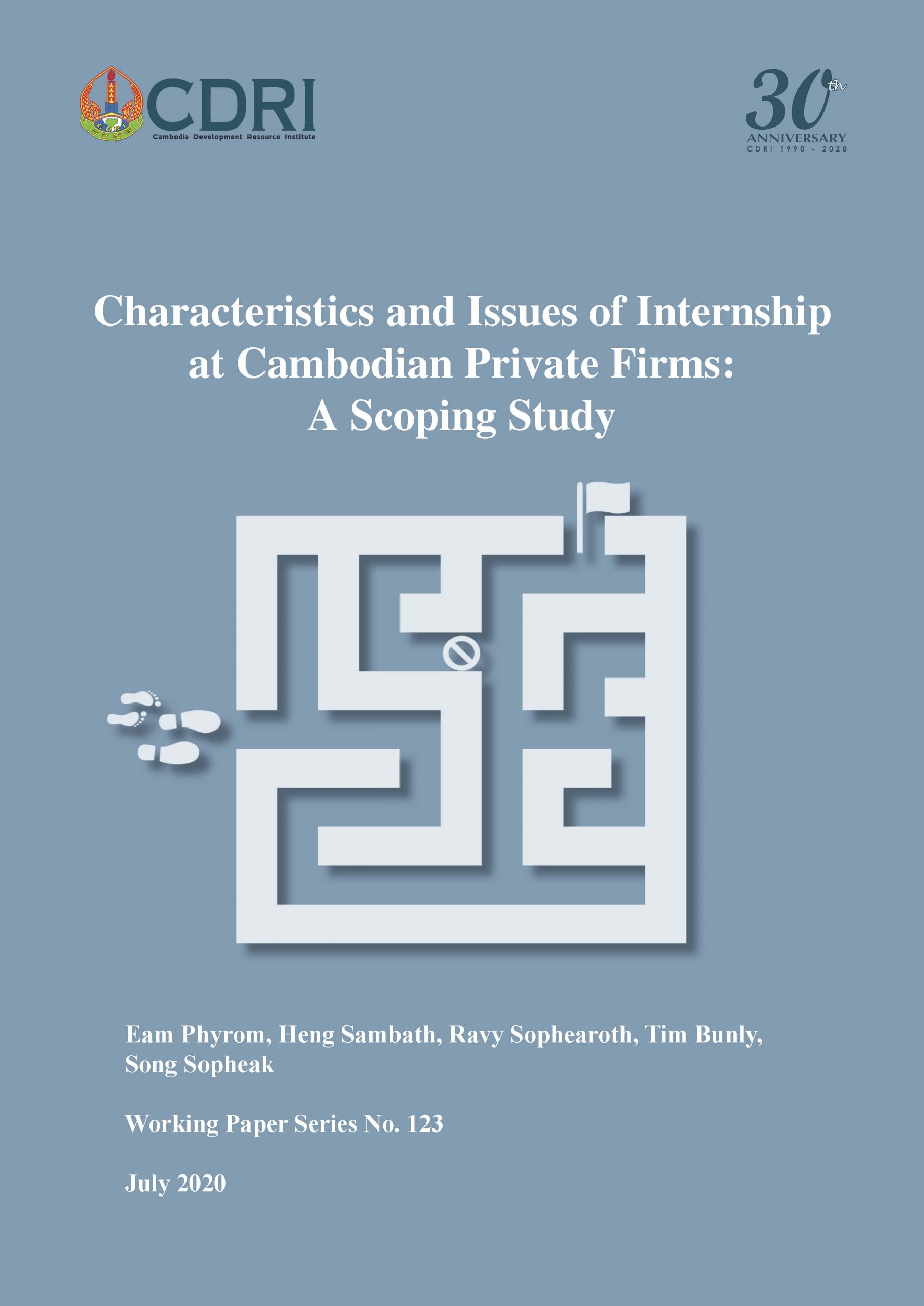
To address the problems of skills mismatch, skills gaps and low-skilled labour that is hindering Cambodia’s economic development, the RGC issued the 2017 Internship Policy. Part of a larger endeavour to link providers of Technical and Vocational Education and Training (TVET) to private firms, the project aimed to give TVET students real, workbased...
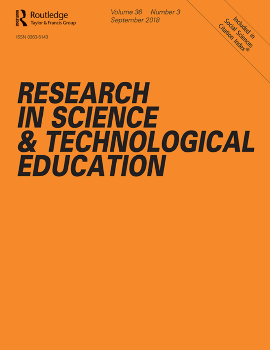
STEM (science, technology, engineering, mathematics) education is attracting increasing public interest and policy attention and being promoted at different educational levels in Cambodia. The study seeks to identify factors associated with Cambodian university freshmen’s choice of STEM major and how significant associations differ by gender and un...
